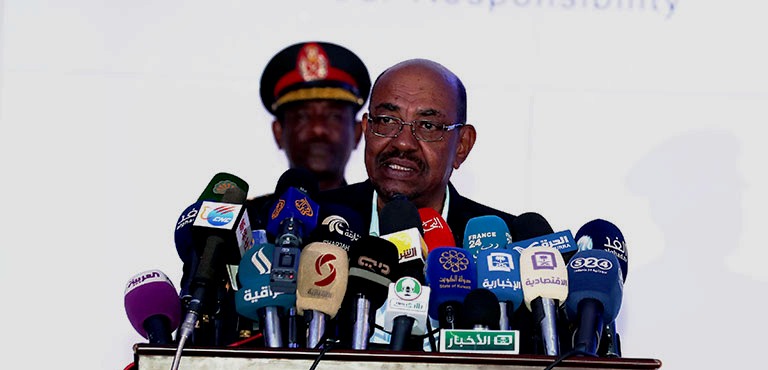Sudan’s al-Bashir says not preoccupied with re-election in 2020

February 4, 2018 (KHARTOUM) – The Sudanese President Omer al-Bashir said he is not preoccupied with the ongoing row about his reelection in 2020 vowing to support any candidate chosen by the people.
Speaking at the headquarters of the paramilitary Popular Defence Forces (PDF) Sunday, al-Bashir described the issue of the presidency as “divinely matter”, reciting the Quranic verse “O Lord of all dominions, You give whom it pleases You the kingdom, and You take away the power from whosoever You will”.
He pledged to support any candidate who decides to run for presidency, expressing full trust in other party leaders who step forward to assume responsibility.
Al-Bashir’s term ends in 2020 and he couldn’t run for office again according to the constitution. So, running for a third term requires amendment of the constitution but many in the ruling party or the opposition forces are not supportive of such move.
Nonetheless, some voices within the ruling National Congress Party (NCP) and its partners in the Government of National Consensus have recently called for amending the constitution to allow him to run for the presidency again.
Also, a group called the National Initiative of Youth Around the President (NIYAP) last December launched a campaign to nominate al-Bashir for a third term.
FOREIGN CONSPIRACIES
Meanwhile, al-Bashir vowed to protect Sudan against the conspirers who seek to take advantage of the recent economic measures to inflict harm on the country.
He said the enemies have used various military, political and diplomatic means to target the country, pointing to the International Criminal Court (ICC) arrest warrants against him and other officials.
Al-Bashir described these various forms of targeting as attempts to break the will of the Sudanese, saying however it would only strengthen our adherence to the Islamic approach.
Since the release of the 2018 budget last month, peaceful protests erupted in a number of Sudanese states leading to the killing of a high school student in West Darfur State and detention of dozens of opposition activists across the country.
Opposition forces attribute the deteriorating living condition and economic meltdown to corruption, lack of production policies, and lack of economic reform vision following the secession of South Sudan.
Sudan lost 75% of its oil reserves after the southern part of the country became an independent nation in July 2011, denying the north billions of dollars in revenues. Oil revenue constituted more than half of Sudan’s revenue and 90% of its exports.
(ST)
